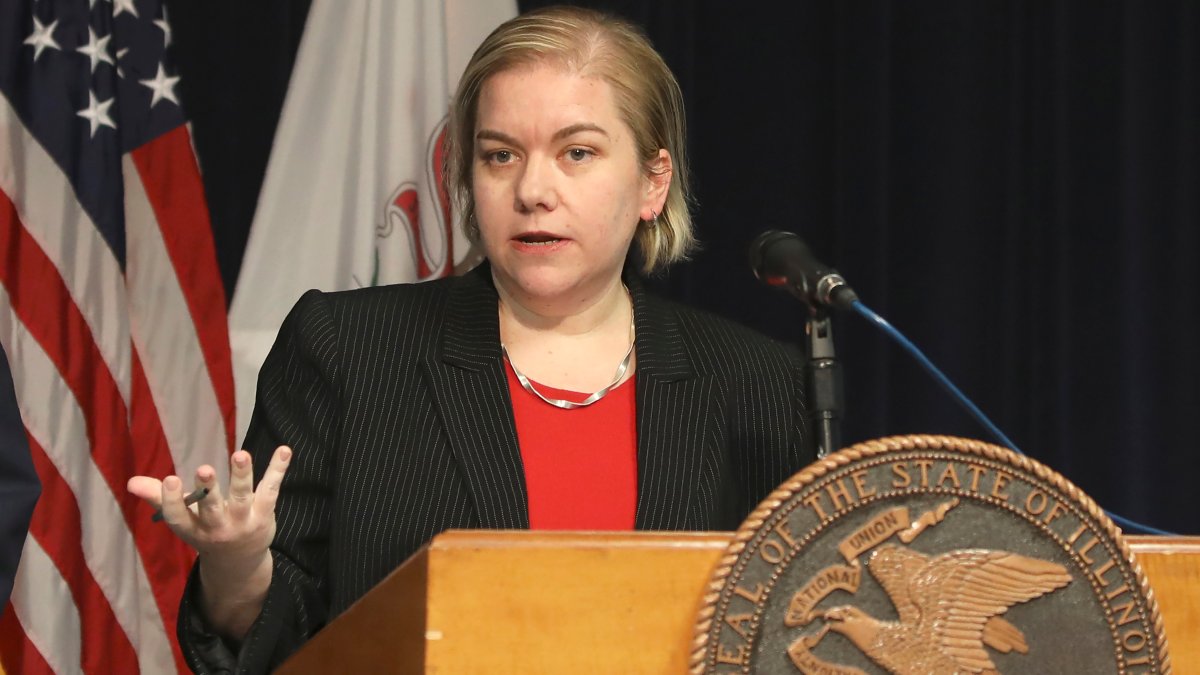
Chicago Department of Public Health Commissioner Dr. Allison Arwady said this week that people have tried to jump ahead in line by lying about their employment status or residency, or even sharing their codes for a second dose with loved ones to try and get the vaccine early.
As Chicago awaits more doses of the coronavirus vaccine, the city's top doctor said Tuesday that the next phase of vaccinations could be pushed back.
Chicago Department of Public Health Commissioner Dr. Allison Arwady said the city needs to see a significant increase in vaccine doses from the federal government in order to move into Phase 1C as previously announced.
"If we don't get significantly more vaccine, like we're anticipating, it's possible we could have to push the date for 1C back," Arwady said. "At this point we're sort of going with a projection that there will be quite a bit more vaccine."
Chicago was originally planning to move into Phase 1C on March 29, followed by the entry of Phase 2 on May 31.
Phase 1C includes all essential workers not covered in earlier phases, as well as Chicagoans between the ages of 16 and 64 who have underlying medical conditions, Arwady said.
"Looking ahead to Phase 2, which is really when a vaccine is available to all Chicagoans, we're tentatively saying that might begin May 31, the end of May. All of these numbers for Phase 1C and Phase 2 is subject to change but just to give people a high level sense of what we're thinking," Arwady said.
As of Tuesday, Chicago was receiving 6,000 first doses of the vaccine per day, though there are more than 700,000 Chicagoans eligible for vaccinations in Phase 1B, according to Arwady.
Local
Arwady said this week that people have tried to jump ahead in line by lying about their employment status or residency, or even sharing their codes for a second dose with loved ones to try and get the vaccine early.
"If you feel like, 'Oh, I found a secret way to get this like a message board or something, all you are doing is creating extra work for the health department or for the people who are trying to get vaccine who need to make sure people can get the second doses on time," Arwady said in Facebook Live address Tuesday. "The great majority of people have been doing exactly the right thing, but I'll be honest with you, I know there's a lot of demand for vaccine. We do require people to certify that they are eligible. We count on people to be honest when they are doing that, and then we count on people to not try to inappropriately sort of share some of those opportunities."
Among one of the big challenges Arwady said the city is facing when it comes to vaccine rollout is people sharing QR codes they receive in order to get their second dose of the vaccine.
"I'll tell you one of the challenges has been that people get that first dose, we want to make sure they get the first dose. As soon as they've gotten it, we work with them right then to get their second dose signed up and we've been using a QR code that lets people get in and get their second dose," Arwady said. "The problem is, we've been seeing people share that QR code, which is designed for second doses, inappropriately with friends, with family. And then we get people coming in trying to take up our second dose slots to get their first dose. So we have ways to track that, we've been able to tell people, 'Sorry, this is only for the second dose. We've got to hold it.'"
In addition to the code sharing, Arwady said there's also concern about people who say they are Chicago residents, but aren't, or who claim they are eligible for the vaccine but aren't.
"We committed very hard to not requiring identification for vaccine appointments and we remain committed to that because of concerns about immigration and others, but we are concerned, where we are seeing non-Chicago residents who may not actually be eligible coming in," she told the City Council's Committee on Health and Human Relations Monday.
She noted the city is discussing the possibility that people may need to bring in a piece of mail or something to prove residency in some cases, though no decisions have been made.
Arwady has previously noted that those who work in essential fields in Chicago, but don't live in the city can still get vaccinated, however.
As of Tuesday, Chicago has administered 339,101 doses at city sites, according to data from CDPH. Of those, 63% have gone to city residents and 37% have gone to non-city residents or people with no residency reported.
"One of the things worth noting is that we are doing a lot of vaccinating of non-Chicago residents, but then in contrast, there's been 270,000 doses administered to Chicago residents," Arwady said, adding that 58,000 doses have been given to residents at locations outside the city.
"This just points to why we do have, you know, really good agreements in place with Cook County, with some of the other areas around us. Again, if people are working... they live in Chicago, but they work in a factory, for example, in suburban Cook, or we've had, we've been vaccinating correctional officers, for example, over the last week or two - a lot of them live in suburban Cook, but work in Chicago. We really collaborate there back and forth."
Still, she has one request for those hoping to get vaccinated:
"I can't emphasize this enough: please do not try to game the system," Arwady said. "Please do not try to share if you get a code if you get an appointment that's been directed for you."



